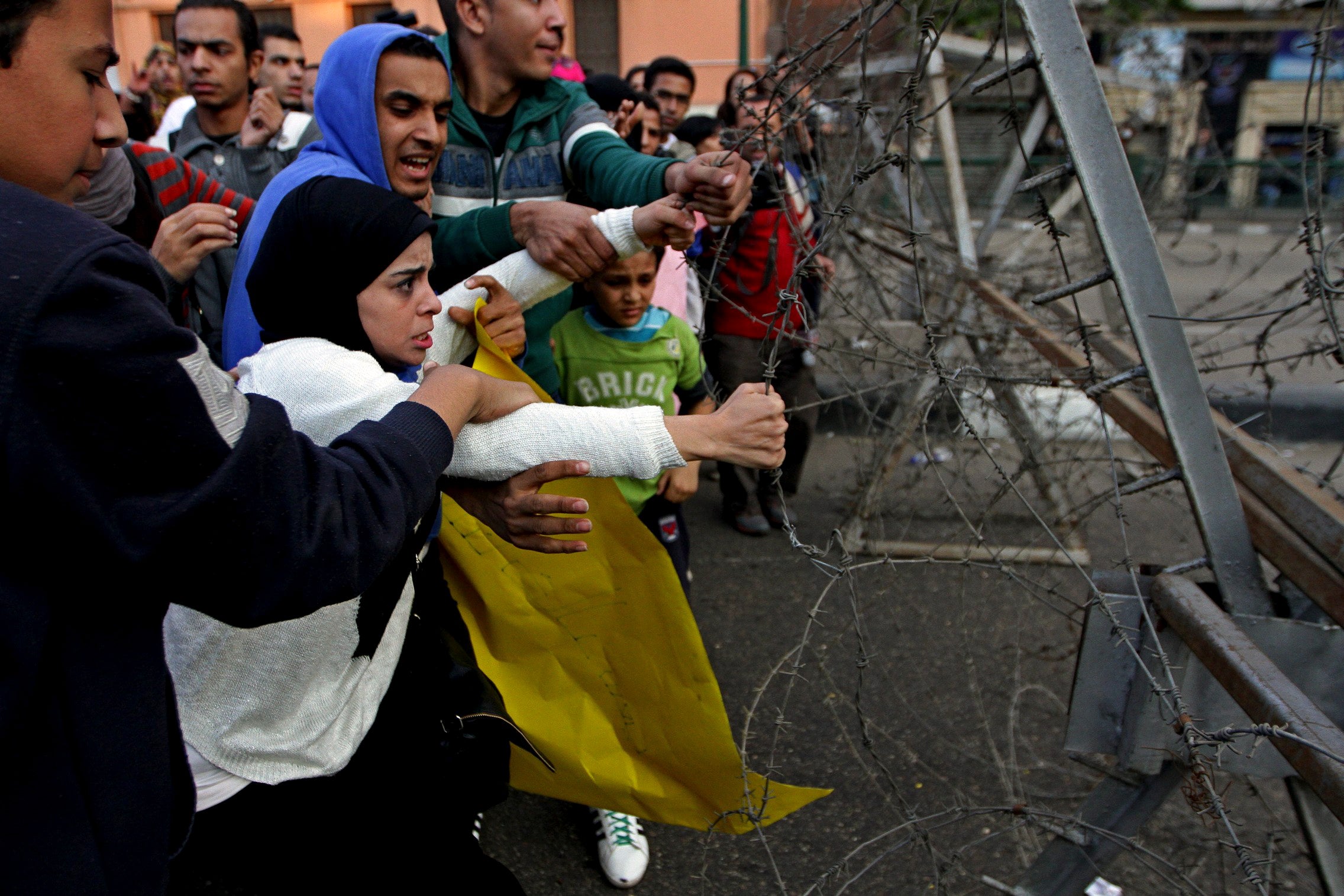Now Hosni Mubarak has been acquitted, it's safe to say that the Egyptian Revolution is officially over
The hope of the Egyptian people that I saw in 2011 has been completely shattered

Your support helps us to tell the story
From reproductive rights to climate change to Big Tech, The Independent is on the ground when the story is developing. Whether it's investigating the financials of Elon Musk's pro-Trump PAC or producing our latest documentary, 'The A Word', which shines a light on the American women fighting for reproductive rights, we know how important it is to parse out the facts from the messaging.
At such a critical moment in US history, we need reporters on the ground. Your donation allows us to keep sending journalists to speak to both sides of the story.
The Independent is trusted by Americans across the entire political spectrum. And unlike many other quality news outlets, we choose not to lock Americans out of our reporting and analysis with paywalls. We believe quality journalism should be available to everyone, paid for by those who can afford it.
Your support makes all the difference.Tahrir Square is no longer the festival of hope and anticipation that greeted me when I first arrived in Cairo in September 2011. Three years later, when it's not being tactically closed by the government to help prevent any further mass protests, it's a place of bitterness and disappointment.
I lived just round the corner from Tahrir Square at the time of the Egyptian revolution. When I first arrived I witnessed the fresh hope and excitement of a people who had just realised the force of their own power. But that hope has quickly disappeared, after desperate attempts to initiate change were constantly thwarted.
The acquittal of former president Hosni Mubarak on a flimsy legal technicality comes as no shock in an Egypt still ruled by injustice. His freedom has become a symbol of the revolution’s failure. But Egypt’s youth are not ready to give up the struggle for the revolution’s ideals just yet. More civil unrest is likely to lie ahead. But given the brutal crackdowns by the government so far, it seems unlikely that protests will change anything.
The court’s verdict confirms the dominance of Egypt’s military. The legal system remains under their control. The freedom of speech that so many fought for three years ago has been almost completely quashed. Any dissent is stamped on immediately and hundreds of dissenters have been killed and more sent to jail.
Whether the balance can ever be readdressed through protest or political activity remains to be seen. Live ammunition and tanks are the current responses to any form of protest. Civilians are being tried at military rather than civilian courts. Just after Mubarak was cleared the other day, one such court sentenced almost 200 people to death.
Likewise, a judge in Southern Cairo sentenced 529 people to death in March, for attacking a police station and killing two policemen. The same judge then sentenced another 683 people to death a month later.
Mass death sentences like these only serve to shift the balance of power even further towards the army. It’s also coupled with an informant culture cultivated at Sisi’s hands, which is instilling fear and distrust amongst civilians.
It's likely that the outrage of Mubarak’s acquittal will help reinvigorate the revolutionary movement, which remains fatigued from four years of struggle. Protests erupted across Cairo's universities when the verdict was announced. On Saturday evening two people were killed and nine injured when around 1,000 protestors tried to enter Tahrir Square.
For any protest to work, there needs to be a return to the cohesion of 2011. Yet the sweeping class and religious unity, which was the vision of the Arab Spring, seems as far away as ever. Mubarak loyalists, Sisi supporters, liberals, and the Muslim Brotherhood are just a few of Egypt’s increasingly disparate political groups, and with many of their hopes raised by the upheaval of 2011, they continue to clash over what’s best for the country's future.
As we near the end of 2014, it doesn’t look like Egypt will be returning to the glimpses of democracy it had just a few years ago. Despite some small pockets of resistance, for most Egyptians morale is low and the future looks bleak.
Join our commenting forum
Join thought-provoking conversations, follow other Independent readers and see their replies
Comments